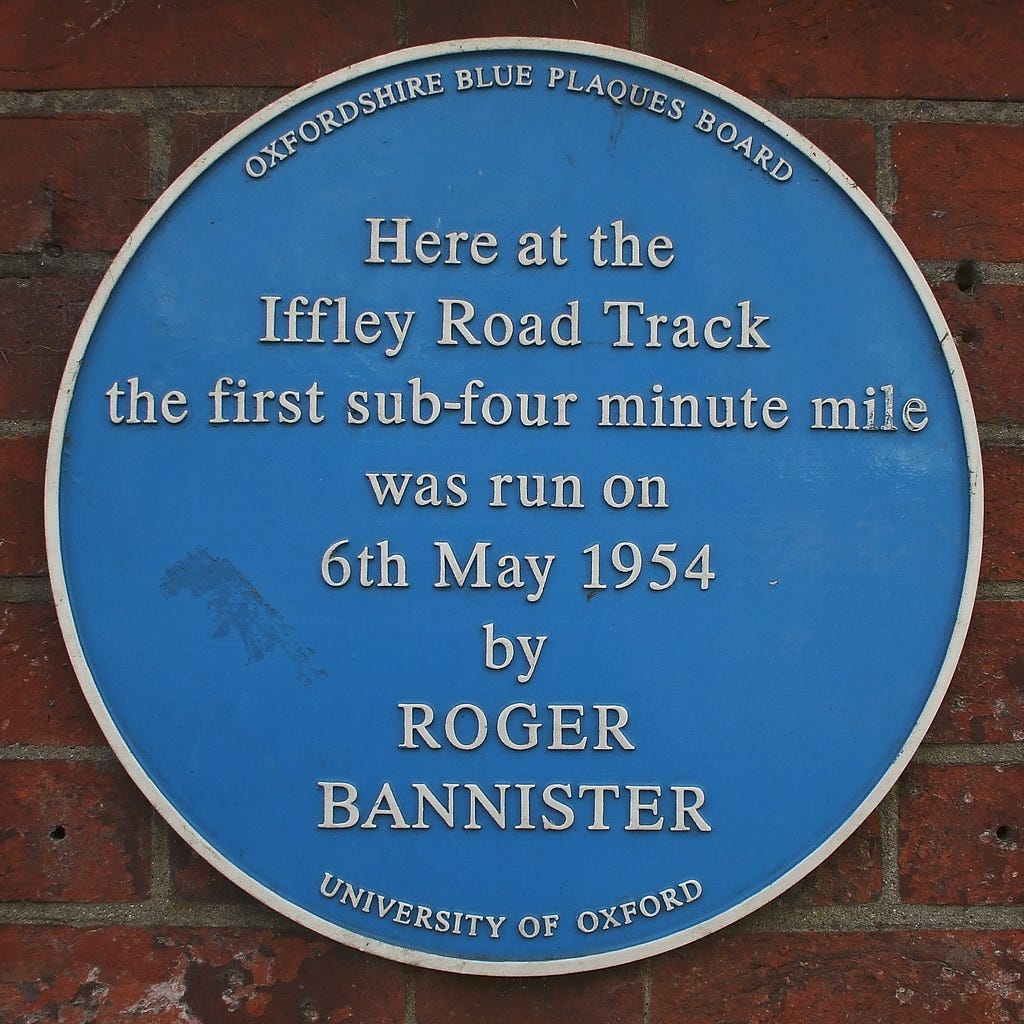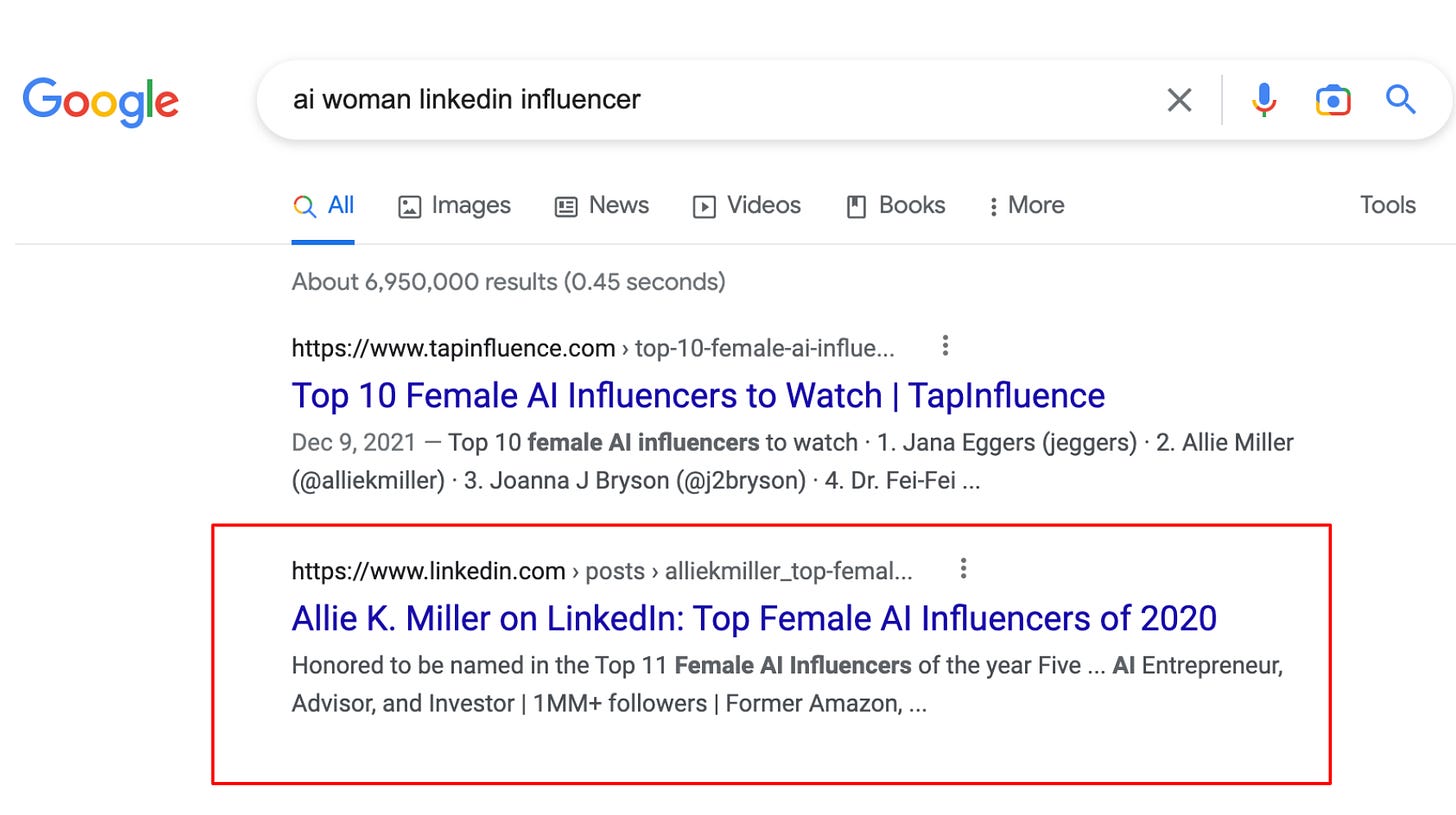ChatGPT will change everything...but not in the way you think
Explaining the "Roger Bannister" Effect
In 1954, the world believed that no human would ever break 4 minutes in the mile. It was declared an impossible task, beyond the limits of human achievement. But on May 6th, 1954, Roger Bannister did just that, finishing in 3:59.4. It was an extraordinary achievement, and the world took notice. But then, something even more extraordinary happened.
46 days later, another runner ran a mile in under 4 minutes. A year later, three different runners in a single race broke the 4-minute barrier. Now the men’s world record sits at 3:43, and over a thousand runners have run a sub-4 minute mile.
Humans are psychological creatures. When something hasn’t been done before, we tend to believe it can never be done. But as soon as it is accomplished, the floodgates are open. This phenomenon is rightfully called the “Roger Bannister” effect.
In 1998, Google’s search engine created its own “Roger Bannister” effect, by giving people the ability to instantly and (somewhat) intuitively find information. But in the decades since, we’ve seen little progress. Let me share an example.
Search is great at finding information
The other day I was trying to find a post written by AI expert Allie Miller. Except…I couldn’t remember her name. Or the name of her latest post. Or her current role/title. The only thing I could remember is that she talks about AI on LinkedIn. So I fired up my trusty search bar and typed in “AI woman linkedin influencer”. And bingo, she was the second result.
Considering how little context I was able to give, that’s pretty incredible. And that’s what search does really well, it points you to information - web pages and articles that have the best chance at answering your question. When it’s a simple question, the answer is easily surfaced. But when it’s a complex question, it doesn’t quite get you there.
Where ChatGPT beats search
ChatGPT mimics the feeling of talking to a human. It understands nuance and remembers context. It summarizes and infers information, and then concisely explains it to you. It essentially does the job of search for you. It saves you hours of research, helps you hone your thinking on complex topics, remembers things you said in the past, and does it all in a very intuitive, conversational interface. I’ll quote Allie here (thanks again Google) because she hits the nail on the head here:
"In the same way that Google lets you access knowledge in real-time, AI will let you access intelligence in real-time." 1
This is the difference between Google and ChatGPT. While Google gives you access to information, ChatGPT gives you access to understanding. It’s like having a world full of experts on every topic imaginable, right at your fingertips.
ChatGPT is the “Roger Bannister” of AI
There is much to be learned from AI, and we only at the tip of the iceberg. But even if ChatGPT shuts down tomorrow, the floodgates have been opened. This tool took a future so crazy that no one could comprehend it, and made it reality.
And this is just the beginning. Shortly after ChatGPT went viral, Neeva, a new subscription-based search engine, quickly launched their beta version of “Neeva AI”. Shortly thereafter, Notion congratulated me on getting off the waitlist for “Notion AI”. And Lex, an AI-enhanced word processor, was nominated “Best Product of the Year” on Product Hunt.
I have a lot more thoughts on AI and predictions for the winners in this space, that I will share in follow up posts. While AI has a long way to go, the catalyst for change has occurred. ChatGPT changed the way that people see and understand AI, and in turn has changed their expectations for what is possible. Whatever comes next, it comes because of this.
https://www.linkedin.com/pulse/chatgpt-professionals-guide-using-ai-allie-k-miller/?trackingId=b7aOQDVCQMmZgnN4R4uACg%3D%3D





